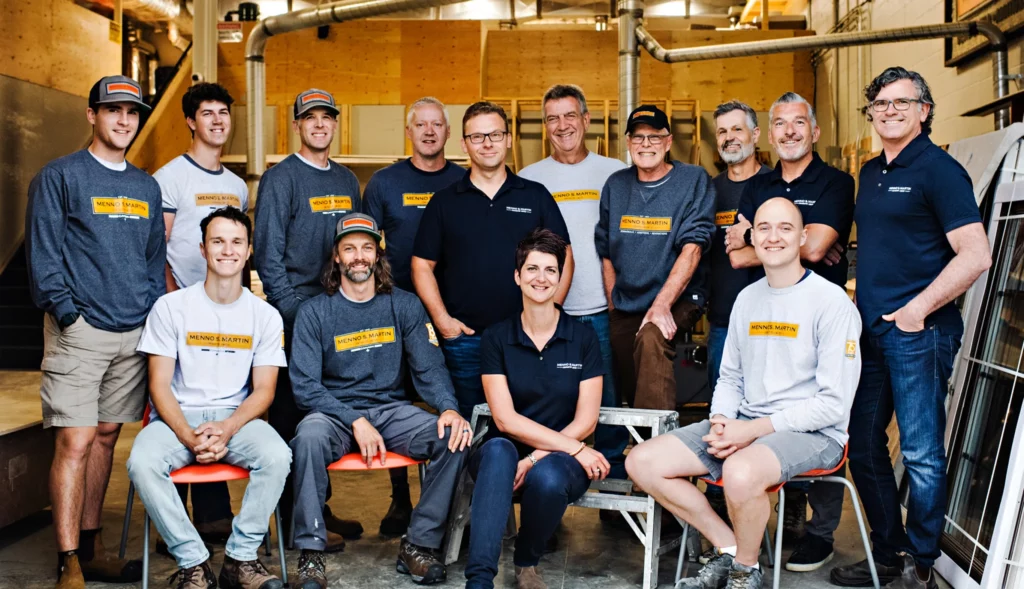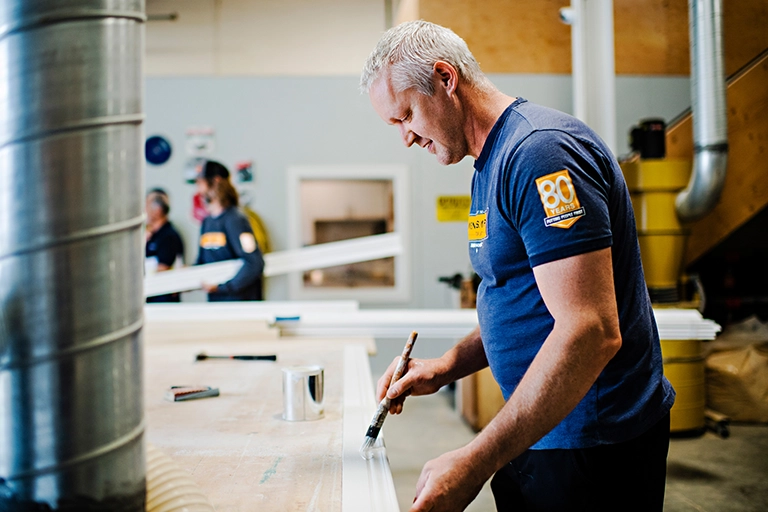
Planning a renovation is exciting but it can also be overwhelming! Don’t worry though, we are here to help you every step of the way.
We’ve outlined some things to consider if you’re thinking about planning a renovation this year.
1. Hiring the right contractor
Should you hire a general contractor, or hire out subcontractors yourself?
There’s a big difference between general contractors and subcontractors. We always recommend hiring a general contractor for any renovation, and here’s why:
General contractors will:
- Save you money by negotiating with subcontractors for better pricing, efficiently managing the subcontractors’ work, and choosing the best materials for your project, saving you money in the long-term.
- Save you time and energy by negotiating, arranging, and coordinating all details with subcontractors to make sure your reno is done exactly to your specifications.
- Bring experience to the table: whether that’s using their own trusted employees or preferred subcontractors that they’ve worked with before; or through knowing the process that is needed to happen in order for your reno to go smoothly from years of their own experience.
- Have knowledge of building codes and permits – saving you a lot of time trying to find out what you need for proper construction practices and safety measures, or missing a necessary step you didn’t know you needed.
- Ensure you get what you want by troubleshooting any issues throughout the renovation process, as well as by taking responsibility for the final result.
Learn more about the benefits of hiring a general contractor in Why You Should Hire a Contractor.
2. Creating a renovation budget
Renovations are a big decision, and one of the most important steps in the renovation process is to create a renovation budget.
A good place to start out is by researching some materials and appliances that you would like to include in your renovation at home improvement stores. Once you’ve got an idea of what you’re looking to include, we can help you prepare a proper renovation budget based on the scope of your project. It will include:
- Labour
- Materials
- Permits
- Clean up costs
It can also be a good idea to include an additional 10% to account for unexpected surprises.
Learn more in our blog, Creating a Renovation Budget.
In terms of financing your renovation, your options include:
- Bank loan
- Home equity line of credit
- Mortgage refinancing
You can learn more in How to Finance a Renovation Part 1 and Part 2.

What to expect during a renovation
Like we mentioned, renos are exciting but they can also be overwhelming, in particular when your house is under construction. Knowing what to expect during the renovation process is one way to make things feel more manageable!
Your daily routine will likely need to change. There may be areas of your house that you have restricted access to; there will be people coming and going during the day; and there will be extra noise from contractors hard at work. Thinking about how to navigate a new, temporary routine for every member of the household (including kids and pets!) in advance can help to make this transition easier.
Be prepared to show your home a little extra love during a reno – both inside and out. Even with preventative measures like dust barriers and floor covers, mess and dirt in other parts of your house will happen. Extra foot traffic and vehicles may also mean more wear and tear to your yard (especially for additions). But don’t stress – we will guide you through how to minimize the effects of a reno!
Want to know more about what to expect during a reno? Read 8 Things to Expect During Your Home Renovation.
Permits and bylaws
Ah, the fun stuff! Depending on your renovation project, you may need a building permit; and what type of building or addition you can get a building permit for is governed by your zoning bylaws.
If this sounds complicated and makes your eyes widen a little, don’t worry. This is one of our areas of expertise! You can trust us to know what permits you may need, and what your particular municipal zoning bylaws outline.
Want to know more? Read Zoning By-laws & Building on Land in Ontario and A Building Permit. What’s That?

Renovation safety
If the thought of taking a sledgehammer to that wall you can’t wait to get rid of sounds exciting – hang on before you take that swing! The demolition process of a renovation can be dangerous and safety precautions are a must. From falling objects to structural reinforcement, it’s best to leave the demolition to the experts (that’s us!).
If you decide to go ahead with the demolition process yourself, it’s crucial to consider some safety steps first, such as:
- Securing or removing ornamental or non-permanent portions of walls and ceilings in the room you’re working in
- Make sure that you get a full picture of the building’s structural stability before completing a demolition
- Invest in proper personal protective equipment
We highly recommend reading our blog on Renovation Safety: Protecting Yourself from Falling Objects for more information if you’re thinking about doing any demolition yourself.
Now that you’re prepared, it’s time to start making that renovation dream a reality! Get in touch with us to get started.










